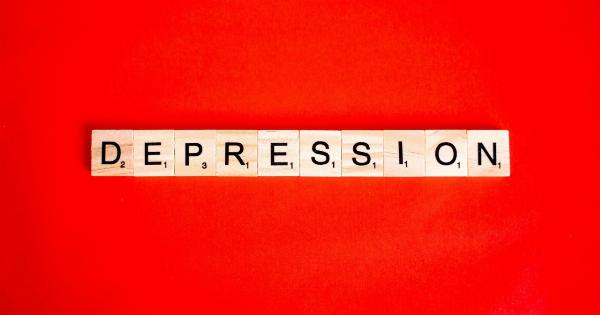Comic books have long been a popular form of entertainment, loved by people of all ages.
However, beyond their ability to captivate readers with colorful illustrations and gripping narratives, comic books have emerged as a powerful medium for addressing mental health stigma. With their unique ability to blend visual storytelling with engaging narratives, comic books provide an accessible and relatable way to explore and address mental health issues.
The Power of Visual Storytelling
One of the key strengths of comic books is their ability to convey complex emotions and experiences through visual storytelling.
By combining illustrations with written dialogue, comic books create a multidimensional experience that engages both the mind and the emotions of the reader. This visual medium allows for a deeper understanding and empathy towards mental health issues, as readers can visually witness the experiences of characters struggling with their mental health.
Breaking Down Stigma through Representation
Representation is a crucial aspect of addressing mental health stigma, and comic books have played a significant role in breaking down stereotypes and promoting inclusive narratives.
Through the depiction of characters with various mental health conditions, comic books provide a platform for individuals to see themselves reflected in fictional stories. This representation helps to normalize mental health struggles and fosters empathy and understanding in readers who may not personally relate to these experiences.
The Transformative Role of Superheroes
Superhero comic books, with their larger-than-life characters and epic storylines, have the power to inspire and empower readers.
Through the lens of superhero narratives, mental health issues can be explored in a way that highlights resilience, strength, and the importance of seeking help. Superheroes with mental health conditions, such as Marvel’s Iron Man or DC’s Batman, demonstrate that individuals with mental health struggles can overcome obstacles and lead fulfilling lives.
These portrayals not only challenge stereotypes but also provide hope and encouragement to individuals facing similar challenges.
Comic Books as Educational Tools
In addition to entertaining readers, comic books have also proven to be effective educational tools for addressing mental health stigma.
Creating comic books specifically aimed at educating people about mental health can help raise awareness and promote accurate information. Comic books can provide explanations of mental health conditions, portray the experiences of those affected by them, and even offer guidance on seeking help and support.
The visual and narrative nature of comic books makes complex information more accessible and engaging, allowing readers to absorb and understand the content more easily.
An Outlet for Personal Stories
Comic books also serve as a platform for individuals to share their personal stories and experiences with mental health.
Autobiographical and semi-autobiographical comic books, known as “graphic memoirs,” have gained popularity in recent years.
These memoirs, such as “Hyperbole and a Half” by Allie Brosh or “Marbles” by Ellen Forney, not only provide powerful accounts of personal struggles but also help dismantle the stigma surrounding mental health through their honest and relatable narratives.
Collaborations with Mental Health Professionals
Comic books have also become a medium for collaboration between mental health professionals and comic book creators. By working together, they can ensure accurate representation and portrayal of mental health issues.
These collaborations often involve mental health professionals providing guidance and expertise, while comic book creators utilize their storytelling skills to create impactful narratives.
User-Driven Online Communities
The digital age has given rise to online communities centered around mental health and comic books.
These communities provide a safe space for individuals to discuss and share their experiences with mental health, often utilizing comic book references and discussions as a way to connect with others. These virtual communities not only encourage open conversations about mental health but also help foster a sense of belonging and support for individuals who may feel isolated in their experiences.
Challenges and Criticisms
Despite the positive impact comic books have in addressing mental health stigma, some challenges and criticisms exist. One criticism is the oversimplification of mental health issues within the limited space of comic book narratives.
While comics can provide an introduction to mental health topics, it is essential to recognize their limitations in capturing the nuances and complexities of these conditions. Additionally, there is a need for diverse and intersectional representation within the comic book industry to ensure that the experiences of all individuals struggling with mental health are accurately portrayed.
The Future of Comic Books in Addressing Mental Health Stigma
As mental health continues to be an important topic of conversation, comic books have the potential for even greater impact in addressing stigma.
The rise of graphic medicine, a genre that uses comics as a medium to explore healthcare and patient experiences, provides further possibilities for mental health-related narratives.
With ongoing collaborations between mental health professionals, comic book creators, and diverse voices within the industry, there is an opportunity to amplify stories that challenge stereotypes, promote understanding, and advocate for mental health support.
Conclusion
Comic books have emerged as a powerful medium for addressing mental health stigma.
Through visual storytelling, inclusive representation, and collaborations with mental health professionals, comic books provide an accessible and relatable way to explore and understand mental health issues. From superhero narratives to personal accounts, comic books have the potential to break down stereotypes, educate readers, and foster empathy and support for individuals struggling with mental health.
As society continues to grapple with mental health stigma, comic books offer a vital platform for promoting understanding and advocating for change.




























